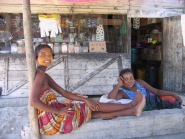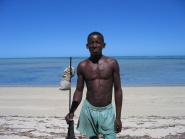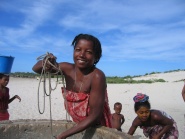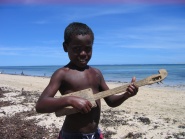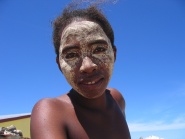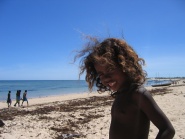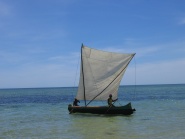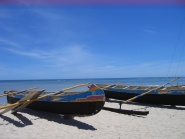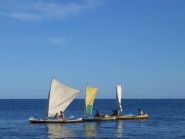Difference between revisions of "Vezo"
CampMaster (talk | contribs) |
CampMaster (talk | contribs) |
||
| Line 15: | Line 15: | ||
<td valign="top">[[Image:Anakao_00001.jpg|185px|none|thumb|Vezo child at Anakao beach]]</td></tr></table> | <td valign="top">[[Image:Anakao_00001.jpg|185px|none|thumb|Vezo child at Anakao beach]]</td></tr></table> | ||
| − | Vezo people are also noted for their tombs. The graves are dug into the sand in a hidden place, with a wooden fence erected around it. The main four poles are decorated with wooden carved | + | Vezo people are also noted for their tombs. The graves are dug into the sand in a hidden place, with a wooden fence erected around it. The main four poles are decorated with wooden carved figures, some of which are even erotic. |
<table cellpadding="0" cellspacing="0" border="0" style="margin-right:10px;"><tr> | <table cellpadding="0" cellspacing="0" border="0" style="margin-right:10px;"><tr> | ||
Revision as of 10:05, 29 December 2009
Vezo literally means Fishing people. The Vezo people are often referred to as Vezo-Sakalava. They are not an individual tribe, they can be seen as a clan of the Sakalava. Their home is the southwestern coast of Madagascar, reaching from Morondava in the west to Faux Cap in the south. Morombe is the Vezo capital, a small city between Toliara (Tulear) and Morondava.
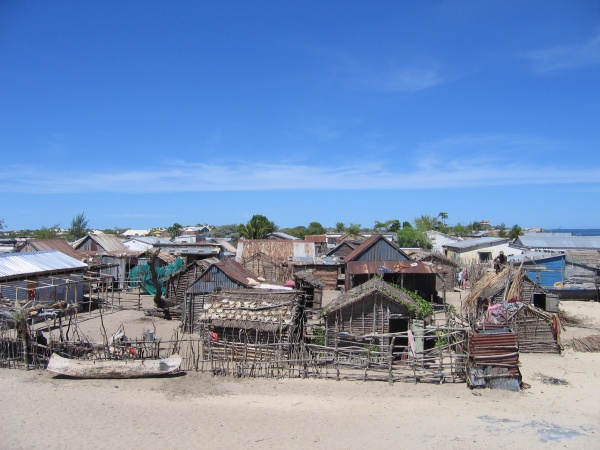
The Vezo are skilled fishermen and excellent boatmen. Their colourful canoes are related to the Malayo-Polynesian canoe. The Vezo canoe is actually a hollowed tree trunk with one outrigger pole and a small rectangular sail.
Vezo people are also noted for their tombs. The graves are dug into the sand in a hidden place, with a wooden fence erected around it. The main four poles are decorated with wooden carved figures, some of which are even erotic.
